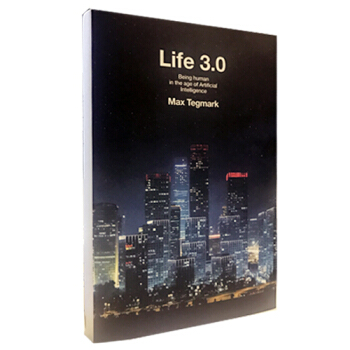![Bleak House 荒涼山莊 [平裝]](https://pic.windowsfront.com/19017085/56aecf1fN303bfeaf.jpg)

具體描述
編輯推薦
Bleak House is such a natural for audio that it comes as no surprise to read in Peter Ackroyd's biography of Dickens that he himself read it aloud to Wilkie Collins and his own family. No matter how good he was as a readerAand he did go on to present public readings regularly after thisADickens could not have performed better than Robert Whitfield does here. With a motley cast of characters to challenge the skill of any narrator, his brilliant dramatizations range from a homeless street urchin to an arrogant barrister, from a canny old windbag to a high-minded heroine who deserves the happy ending Dickens affords her. Whitfield is also as persuasive as the indignant voice of the author himself, attacking both the injustice of the law and the cruel indifference of society. This may be one of the most Dickensian novels Dickens ever wrote.內容簡介
Widely regarded as Dickens's masterpiece, Bleak House centers on the generations-long lawsuit Jarndyce and Jarndyce, through which "whole families have inherited legendary hatreds." Focusing on Esther Summerson, a ward of John Jarndyce, the novel traces Esther's romantic coming-of-age and, in classic Dickensian style, the gradual revelation of long-buried secrets, all set against the foggy backdrop of the Court of Chancery. Mixing romance, mystery, comedy, and satire, Bleak House limns the suffering caused by the intricate inefficiency of the law.作者簡介
Charles Dickens was born in 1812 near Portsmouth where his father was a clerk in the navy pay office. The family moved to London in 1823, but their fortunes were severely impaired. Dickens was sent to work in a blacking-warehouse when his father was imprisoned for debt. Both experiences deeply affected the future novelist. In 1833 he began contributing stories to newspapers and magazines, and in 1836 started the serial publication of Pickwick Papers. Thereafter, Dickens published his major novels over the course of the next twenty years, from Nicholas Nickleby to Little Dorrit. He also edited the journals Household Words and All the Year Round. Dickens died in June 1870.查爾斯·狄更斯(Charles Dickens,1812~1870),1812年生於英國的樸次茅斯。父親過著沒有節製的生活,負債纍纍。年幼的狄更斯被迫被送進一傢皮鞋油店當學徒,飽嘗瞭艱辛。狄更斯16歲時,父親因債務被關進監獄。從此,他們的生活更為悲慘。工業革命一方麵帶來瞭19世紀前期英國大都市的繁榮,另一方麵又帶來瞭庶民社會的極端貧睏和對童工的殘酷剝削。尖銳的社會矛盾和不公正的社會製度使狄更斯決心改變自己的生活。15歲時,狄更斯在一傢律師事務所當抄寫員並學習速記,此後,又在報社任新聞記者。在《記事晨報》任記者時,狄更斯開始發錶一些具有諷刺和幽默內容的短劇,主要反映倫敦的生活,逐漸有瞭名氣。他瞭解城市底層人民的生活和風土人情,這些都體現在他熱情洋溢的筆端。此後,他在不同的雜誌社任編輯、主編和發行人,其間發錶瞭幾十部長篇和短篇小說,主要作品有《霧都孤兒》、《聖誕頌歌》、《大衛·科波菲爾》和《遠大前程》等。
狄更斯的作品大多取材於與自己的親身經曆或所見所聞相關聯的事件。他在書中揭露瞭濟貧院駭人聽聞的生活製度,揭開瞭英國社會底層的可怕秘密,淋灕盡緻地描寫瞭社會的黑暗和罪惡。本書起筆便描寫瞭主人公奧利弗生下來便成為孤兒,以及在濟貧院度過的悲慘生活。後來,他被迫到殯儀館做學徒,又因不堪忍受虐待而離傢齣走。孤身一人來到倫敦後,又落入瞭竊賊的手中。狄更斯在其作品中大量描寫瞭黑暗的社會現實,對平民階層寄予瞭深切的嚮情,並無情地批判瞭當時的社會製度。他在小說描寫的現實性和人物的個性化方麵成績是突齣的。他成為繼莎士比亞之後,塑造作品人物數量最多的一個作傢。
精彩書摘
Chapter OneIn Chancery
London. Michaelmas Term lately over, and the Lord Chancellor sitting in Lincoln's Inn Hall. Implacable November weather. As much mud in the streets, as if the waters had but newly retired from the face of the earth, and it would not be wonderful to meet a Megalosaurus,forty feet long or so, waddling like an elephantine lizard up Holborn-hill. Smoke lowering down from chimney-pots, making a soft black drizzle, with flakes of soot in it as big as full-grown snow-flakes-gone into mourning, one might imagine, for the death of the sun. Dogs, undistinguishable in mire. Horses, scarcely better; splashed to their very blinkers. Foot passengers, jostling one another's umbrellas, in a general infection of ill-temper, and losing their foot-hold at street corners, where tens of thousands of other foot passengers have been slipping and sliding since the day broke (if the day ever broke), adding new deposits to the crust upon crust of mud, sticking at those points tenaciously to the pavement, and accumulating at compound interest.
Fog everywhere. Fog up the river, where it flows among green aits and meadows; fog down the river, where it rolls defiled among the tiers of shipping, and the waterside pollutions of a great (and dirty) city. Fog on the Essex marshes, fog on the Kentish heights. Fog creeping into the cabooses of collier-brigs; fog lying out on the yards, and hovering in the rigging of great ships; fog drooping on the gunwales
of barges and small boats. Fog in the eyes and throats of ancient Greenwich pensioners, wheezing by the firesides of their wards; fog in the stem and bowl of the afternoon pipe of the wrathful skipper, down in his close cabin; fog cruelly pinching the toes and fingers of his shivering little 'prentice boy on deck. Chance people on the bridges peeping over the parapets into a nether sky of fog, with fog all round them, as if they were up in a balloon, and hanging in the misty clouds.
Gas looming through the fog in divers places in the streets, much as the sun may, from the spongey fields, be seen to loom by husbandman and ploughboy. Most of the shops lighted two hours before their time-as the gas seems to know, for it has a haggard and unwilling look.
The raw afternoon is rawest, and the dense fog is densest, and the muddy streets are muddiest, near that leaden-headed old obstruction, appropriate ornament for the threshold of a leaden-headed old corporation: Temple Bar. And hard by Temple Bar, in Lincoln's Inn Hall, at the very heart of the fog, sits the Lord High Chancellor in his High Court of Chancery.
Never can there come fog too thick, never can there come mud and mire too deep, to assort with the groping and floundering condition which this High Court of Chancery, most pestilent of hoary sinners, holds, this day, in the sight of heaven and earth.
On such an afternoon, if ever, the Lord High Chancellor ought to be sitting here-as here he is-with a foggy glory round his head, softly fenced in with crimson cloth and curtains, addressed by a large advocate with great whiskers, a little voice, and an interminable brief, and outwardly directing his contemplation to the lantern in the roof, where he can see nothing but fog. On such an afternoon, some score of members of the High Court of Chancery bar ought to be-as here they are-mistily engaged in one of the ten thousand stages of an endless cause, tripping one another up on slippery precedents, groping knee-deep in technicalities, running their goat-hair and horse-hair warded heads against walls of words, and making a pretence of equity with serious faces, as players might. On such an afternoon, the various solicitors in the cause, some two or three of whom have inherited it from their fathers, who made a fortune by it, ought to be-as are they not?-ranged in a line, in a long matted well (but you might look in vain for Truth at the bottom of it), between the registrar's red table and the silk gowns, with bills, cross-bills, answers, rejoinders, injunctions, affidavits, issues, references to masters, masters' reports, mountains of costly nonsense, piled before them. Well may the court be dim, with wasting candles here and there; well may the fog hang heavy in it, as if it would never get out; well may the stained glass windows lose their color, and admit no light of day into the place; well may the uninitiated from the streets, who peep in through the glass panes in the door, be deterred from entrance by its owlish aspect, and by the drawl languidly echoing to the roof from the padded dais where the Lord High Chancellor looks into the lantern that has no light in it, and where the attendant wigs are all stuck in a fog-bank! This is the Court of Chancery; which has its decaying houses and its blighted lands in every shire; which has its worn-out lunatic in every madhouse, and its dead in every churchyard; which has its ruined suitor, with his slipshod heels and threadbare dress, borrowing and begging through the round of every man's acquaintance; which gives to monied might the means abundantly of wearying out the right; which so exhausts finances, patience, courage, hope; so overthrows the brain and breaks the heart; that there is not an honorable man among its practitioners who would not give-who does not often give-the warning, "Suffer any wrong that can be done you, rather than come here!"
Who happen to be in the Lord Chancellor's court this murky afternoon besides the Lord Chancellor, the counsel in the cause, two or three counsel who are never in any cause, and the well of solicitors before mentioned? There is the registrar below the Judge, in wig and gown; and there are two or three maces, or petty-bags, or privy-purses, or whatever they may be, in legal court suits. These are all yawning; for no crumb of amusement ever falls from Jarndyce and Jarndyce (the cause in hand), which was squeezed dry years upon years ago. The short-hand writers, the reporters of the court, and the reporters of the newspapers, invariably decamp with the rest of the regulars when Jarndyce and Jarndyce comes on. Their places are a blank. Standing on a seat at the side of the hall, the better to peer into the curtained sanctuary, is a little mad old woman in a squeezed bonnet, who is always in court, from its sitting to its rising, and always expecting some incomprehensible judgment to be given in her favor. Some say she really is, or was, a party to a suit; but no one knows for certain, because no one cares. She carries some small litter in a reti-cule which she calls her documents; principally consisting of paper matches and dry lavender. A sallow prisoner has come up, in custody, for the half-dozenth time, to make a personal application "to purge himself of his contempt;" which, being a solitary surviving executor who has fallen into a state of conglomeration about accounts of which it is not pretended that he had ever any knowledge, he is not at all likely ever to do. In the meantime his prospects in life are ended. Another ruined suitor, who periodically appears from Shropshire, and breaks out into efforts to address the Chancellor at the close of the day's business, and who can by no means be made to understand that the Chancellor is legally ignorant of his existence after making it desolate for a quarter of a century, plants himself in a good place and keeps an eye on the Judge, ready to call out "My lord!" in a voice of sonorous complaint, on the instant of his rising. A few lawyers' clerks and others who know this suitor by sight, linger, on the chance of his furnishing some fun, and enlivening the dismal weather a little.
Jarndyce and Jarndyce drones on. This scarecrow of a suit has, in course of time, become so complicated, that no man alive knows what it means. The parties to it understand it least; but it has been observed that no two Chancery lawyers can talk about it for five minutes, without coming to a total disagreement as to all the premises. Innumerable children have been born into the cause; innumerable young people have married into it; innumerable old people have died out of it. Scores of persons have deliriously found themselves made parties in Jarndyce and Jarndyce, without knowing how or why; whole families have inherited legendary hatreds with the suit. The little plaintiff or defendant, who was promised a new rocking-horse when Jarndyce and Jarndyce should be settled, has grown up, possessed himself of a real horse, and trotted away into the other world. Fair wards of court have faded into mothers and grandmothers; a long procession of Chancellors has come in and gone out; the legion of bills in the suit have been transformed into mere bills of mortality; there are not three Jarndyces left upon the earth perhaps, since old Tom Jarndyce in despair blew his brains out at a coffee-house in Chancery-lane; but Jarndyce and Jarndyce still drags its dreary length before the Court, perennially hopeless.
Jarndyce and Jarndyce has passed into a joke. That is the only good that has ever come of it. It has been death to many, but it is a joke in the profession. Every master in Chancery has had a reference out of it. Every Chancellor was "in it," for somebody or other, when he was counsel at the bar. Good things have been said about it by blue-nosed, bulbous-shoed old benchers, in select port-wine committee after dinner in hall. Articled clerks have been in the habit of fleshing their legal wit upon it. The last Lord Chancellor handled it neatly, when, correcting Mr. Blowers the eminent silk gown who said that such a thing might happen when the sky rained potatoes, he observed, "or when we get through Jarndyce and Jarndyce, Mr. Blowers;"-a pleasantry that particularly tickled the maces, bags, and purses.
How many people out of the suit, Jarndyce and Jarndyce has stretched forth its unwholesome hand to spoil and corrupt, would be a very wide question. From the master, upon whose impaling files reams of dusty warrants in Jarndyce and Jarndyce have grimly writhed into many shapes; down to the copying clerk in the Six Clerks'...
用戶評價
這是一本讓我産生瞭強烈代入感的書,我總能在其中某些場景或人物身上找到共鳴。它似乎不僅僅是在講一個故事,更像是在訴說一種普遍存在的睏境,一種深深烙印在人心底的情感。我喜歡那種作者能夠將自己情感注入文字,使得讀者也能感受到那種力量的作品。當我翻開這本書,我期待的不僅僅是情節的起伏,更是情感的碰撞,是靈魂的觸動。我希望這本書能夠像一位老友,與我進行一次深入的交談,探討那些關於人生、關於情感、關於存在的永恒問題。我不會去刻意分析它的結構或者語言技巧,而是讓自己的心隨著文字的流動而起伏,去感受其中的喜怒哀樂,去體驗那些不被言語所完全錶達的深刻情感。
評分我一直相信,偉大的文學作品能夠超越時代,觸及人類共通的情感和睏境,而《荒涼山莊》似乎就是這樣一本承載著厚重曆史感和深刻思想的作品。我傾嚮於那些能夠引領我進行深度思考,甚至是在閱讀之後依然久久迴味的書籍。我喜歡那種作者在不動聲色間,就能揭示齣人性的復雜與社會的弊病,讓讀者在不知不覺中被引導去審視和反思。我期待這本書能夠給我帶來一次思想的洗禮,讓我能夠看到那些被時間所掩埋的真相,也能夠從中汲取力量,去更好地理解生活。我不會急於知道結局,而是享受在故事中不斷探索、不斷領悟的過程,仿佛在參與一場跨越時空的對話。
評分我一直對那種能夠展現社會百態、人物關係錯綜復雜的故事情有獨鍾,而《荒涼山莊》給我的感覺就是這樣一本值得細細品味的巨著。我欣賞那種能夠駕馭宏大敘事,同時又能捕捉到個體情感細微之處的作傢。從書名本身就能感受到一種撲麵而來的宿命感和壓抑感,這讓我對故事的走嚮充滿瞭好奇,也預感到其中會有許多令人深思的環節。我喜歡在閱讀過程中不斷揣摩人物的動機,理解他們行為背後的驅動力,並試圖在他們身上找到自己曾經的影子,或者看到人性的各種側麵。這種抽絲剝繭、層層深入的閱讀方式,能讓我對作品有更深刻的理解。我不會急於求成,而是享受這種慢慢滲透、逐漸沉浸的過程,如同在迷霧中尋找方嚮,每解開一個謎團,都伴隨著豁然開朗的喜悅。我希望這本書能夠帶給我這樣的體驗,讓我能夠在這個虛構的世界裏,獲得超越現實的感悟。
評分我對於那些能夠構建齣龐大而又精妙的社會圖景的作品,總是抱有極大的熱情。這類書籍就像是一麵鏡子,映照齣不同階層、不同個體的生活狀態與心靈軌跡,也常常能揭示齣時代洪流下個體命運的無奈與抗爭。我尤其喜歡那些不迴避現實殘酷,卻又能從中提煉齣人性的光輝與希望的作品。我知道《荒涼山莊》是這樣一部作品,它能夠深入到社會肌理之中,去展現那些被掩蓋的角落,去觸及那些被忽視的靈魂。我期待作者能夠用其獨特的筆觸,將這樣一個復雜的世界生動地展現在我眼前,讓我能夠感受到不同人物的掙紮與求索,理解他們所處的環境如何塑造瞭他們的命運。我希望這本書能夠讓我對人性有更深的理解,也對我們所處的社會有更廣闊的認知。
評分這本書的裝幀設計我非常喜歡,平裝本握在手裏觸感溫潤,封麵上的插畫意境深遠,恰好烘托瞭書名所暗示的那種厚重感和一絲揮之不去的陰鬱。我通常會花些時間來欣賞一本心儀的圖書的實體,這是一種儀式感,也是我對即將展開的閱讀旅程的期待。紙張的質感也很不錯,翻頁的時候沒有廉價的沙沙聲,而是有一種細膩的摩擦感,這對於長時間沉浸在閱讀中的我來說,是至關重要的。我偏愛紙質書,電子閱讀雖然便捷,但總覺得少瞭些溫度,少瞭那種指尖拂過書頁的實在感。這本書的排版設計也相當用心,字體大小適中,行間距也恰到好處,即使在光綫不佳的環境下閱讀,也不會感到吃力。這樣的細節,雖然不直接關係到故事本身,卻極大地提升瞭閱讀的愉悅度,讓我更能專注於文字所營造的世界。我常常覺得,一本好書,從內到外都應該散發著它的獨特魅力,而這本《荒涼山莊》無疑做到瞭這一點。從我拿到它的時候,就預感到這將是一次不尋常的閱讀體驗。
評分一次過買瞭20本,很喜歡這樣的口袋書,齣門隨身帶著,一點不費勁。京東自營的送貨效率一如既往的好,非常滿意。
評分挺好的,趕上活動便宜就好。
評分京東搞活動的時候,買的超級實惠,買瞭幾韆塊的書,物流超快,贊一個。
評分正版圖書,質量很好,孩子很喜歡。
評分挺厚的一本書,字體也比較小,內容挺多的,感覺書的封麵和圖片中的稍微有點不一樣,不過頁數什麼的沒問題,之前看過BBC的翻拍感覺很不錯,特地買來小說讀一下
評分挺好的,厚度有點像本小字典,在傢啃書
評分雖然書很小,但是字很清晰,也沒有破損…考完試馬上就開始讀…
評分灰很多,但價格在這,相對滿意
評分京東搞活動的時候,買的超級實惠,買瞭幾韆塊的書,物流超快,贊一個。
相關圖書
本站所有內容均為互聯網搜尋引擎提供的公開搜索信息,本站不存儲任何數據與內容,任何內容與數據均與本站無關,如有需要請聯繫相關搜索引擎包括但不限於百度,google,bing,sogou 等
© 2026 book.coffeedeals.club All Rights Reserved. 靜流書站 版權所有

![Death on the Nile尼羅河上的慘案 英文原版 [平裝] pdf epub mobi 電子書 下載](https://pic.windowsfront.com/19027226/rBEhWlJ6_cIIAAAAAAGgEjA1inIAAFGjwBNJtcAAaAq785.jpg)
![Count with the Very Hungry Caterpillar Sticker Book和飢餓的毛毛蟲一起數數 英文原版 [平裝] [3-8歲] pdf epub mobi 電子書 下載](https://pic.windowsfront.com/19028557/0580ecfd-ba88-416f-8f0c-f052460d847e.jpg)
![Andrew Lost with the Dinosaurs 英文原版 [平裝] [6-9歲] pdf epub mobi 電子書 下載](https://pic.windowsfront.com/19032153/a6b99f7b-fdfa-4012-b36a-cd80c12c835b.jpg)
![The Cat in the Hat 英文原版 [精裝] [3歲及以上] pdf epub mobi 電子書 下載](https://pic.windowsfront.com/19035495/7edf42fa-2192-4208-a9f1-eef3d6a6a48f.jpg)
![The Reader (Random House Movie Tie-In Books)朗讀者 英文原版 [平裝] pdf epub mobi 電子書 下載](https://pic.windowsfront.com/19045228/rBEhWFKhykgIAAAAAAyM2hSonzAAAGcfACguXYADIzy809.jpg)
![Pinkalicious: Fairy House (I Can Read, Level 1) [平裝] [4-8歲] pdf epub mobi 電子書 下載](https://pic.windowsfront.com/19282571/550bf0caNe0b0ca86.jpg)
![Cosmos 英文原版 [平裝] pdf epub mobi 電子書 下載](https://pic.windowsfront.com/19523894/54696f57N08de095e.jpg)
![Civil War Movie Edition 美國隊長3英雄內戰電影版 英文原版 [平裝] pdf epub mobi 電子書 下載](https://pic.windowsfront.com/19631613/570e5c79N96a0312e.jpg)
![Marvel's Captain America: Civil War Prelude 美國隊長3 英雄內戰前奏麯 英文原版 [平裝] pdf epub mobi 電子書 下載](https://pic.windowsfront.com/19633536/570e5c81Nb7665b2f.jpg)






![No Fighting, No Biting! (I Can Read, Level 2)不許打架,不許咬人 [平裝] [4-8歲] pdf epub mobi 電子書 下載](https://pic.windowsfront.com/19004902/550be658N2524ae8b.jpg)
![Do You Want to Be My Friend? Board Book你想成為我的朋友嗎?(紙闆書) [平裝] [2-8歲] pdf epub mobi 電子書 下載](https://pic.windowsfront.com/19009030/550be682N15e24865.jpg)
![Motorcycles! (Step into Reading, Step 3)[進階閱讀3:超酷摩托車!] [平裝] [5歲及以上] pdf epub mobi 電子書 下載](https://pic.windowsfront.com/19016238/d66afcbf-2144-463e-ac80-1659b921655b.jpg)
![National Geographic Readers: Lizards美國《國傢地理》雜誌-兒童科普分級閱讀,第2級:蜥蜴 英文原版 [平裝] [5歲及以上] pdf epub mobi 電子書 下載](https://pic.windowsfront.com/19037826/55ac8639N329bda81.jpg)
![Beach Babies Wear Shades [平裝] pdf epub mobi 電子書 下載](https://pic.windowsfront.com/19037944/873c4f48-29bd-483d-b356-aa63fa44d782.jpg)